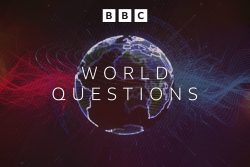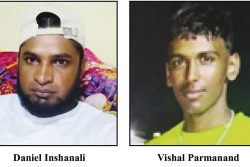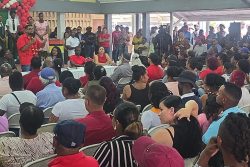It seemed that the long-running feud between the Trinidad & Tobago Football Association (TTFA) and Fifa had come to a conclusion when, on 24 September, Fifa announced that the rebellious Caribbean FA had been suspended. The seven men of the Bureau of the Fifa Council – Gianni Infantino plus the presidents of Fifa’s six constituent confederations – explained their decision in those terms: “The suspension was prompted by the former leadership of the TTFA lodging a claim before a local court in Trinidad and Tobago in order to contest the decision of the FIFA Council to appoint a normalisation committee for the TTFA. This course of action was in direct breach of article 59 of the FIFA Statutes, which expressly prohibits recourse to ordinary courts unless specifically provided for in the FIFA regulations“.
As in the old fable, the clay pot had been no match for the iron pot: what could break did break, and what could inflict the blow had dealt it. It did not matter that the TTFA had won the case it had brought against Fifa in Trinidad & Tobago’s High Court, the supreme legal authority in their own country. In Fifa’s eyes, the rule of T&T law did not apply to Fifa, even if the TTFA had been established by an Act of Parliament in the Caribbean nation. Consequently, it did not matter that Justice Gobin had issued a judgement which expressly called into question the overarching power of Fifa over its 211 Member Associations.
Or rather, it mattered a lot, as TTFA’s victory was the first of its kind and could encourage other MAs and FAs finding themselves on the wrong side of Fifa’s decisions to contest them outside of the agreed protocol, with CAS being the sole ultimate arbiter for disputes of this kind. This was more than a challenge to Fifa’s authority; it was a challenge to the legitimacy of Fifa’s own statutes, something which Justice Gobin made absolutely clear in her first judgement at the High Court. This was too dangerous a precedent to be allowed; in fact, it was widely expected that suspension would follow, should the TTFA not agree to withdraw its case in the T&T High Court; Fifa simply could not be seen to have lost. A deadline was set, which TTFA – according to the letter of the law – failed to meet. Suspension was swift to follow.
Yet, this was not to be the end of this complex affair. Remarkably, within 24 hours of Fifa suspending TTFA , the tables had turned again. Despite the ban, Trinidad & Tobago were among the nations included in the draw for the 2021 Gold Cup, and Fifa found itself in the dock again, not just in Trinidad and Tobago but also in Switzerland.
What follows is the scarcely believable chain of events which led to this reversal of roles and fortunes.
To the man in the Port-of-Spain street, suspension meant that the country’s national team, the Soca Warriors, wouldn’t be able to take part in the draw for the CONCACAF Gold Cup which would take place on 28 September. To those employed by the TTFA, it also meant that Fifa funds would no longer be available to anyone involved in the running of football in the Caribbean nation. This ‘anyone’ included the normalisation committee headed by local businessman Robert Haddad, despite the fact that this normalisation committee had been put in place by Fifa themselves. This was no surprise. It had remained entirely silent on this affair throughout, as if it had never really existed.
These implications posed an existential threat to a football body which is riddled with debts after years or mismanagement and worse, and, beyond that, to any kind of organised football in the country which qualified for the 2006 World Cup, one of a handful of teams from the region which managed to take part in the game’s great jamboree.
The gravity of the situation was such that, on Tuesday 22 September, the day before Fifa’s ultimatum ran out, the members of the TTFA agreed – not without considerable hand-wringing from all sides – that it would be better if its president William Wallace bowed to Fifa’s demands and withdrew the case lodged at the High Court. TTFA’s lawyers were then instructed to do that, something which was immediately reported in the local media. An application to withdraw was filed at the High Court.
However, 24 September being a Bank Holiday – in celebration of Trinidad & Tobago becoming a Republic in 1976 – Fifa were not notified in time, and suspension was decreed. TTFA had missed the deadline for filing the withdrawal of its case by two minutes, having done it at 15:02 rather than the 15:00 as notified for Fifa, which also happened to be the time at which the T&T High Court Civil Registry closed for the day.
Regardless of TTFA’s questionable efficiency (or feeble attempt at legal gamesmanship) – which prompted the resignation of TTFA’s vice-president Susan Joseph-Warrick – that the harshest of punishments which could be inflicted by Fifa was meted out to TTFA because of a 120 second delay had more than a hint of absurdity about it.
The T&T Minister of Sports and Community Development Shamfa Cudjoe blamed Fifa’s decision on ‘the egos and actions of a few jokers’, i.e. the TTFA board elected in November 2019; but it is fair to say that her take on the events wasn’t shared by everybody else. Quite the opposite in fact: the suspension was greeted with shock, anger and disbelief in the archipelago.
“They could have said: ‘allyuh [‘you all’ in Trinidadian English] were two minutes late but we win’”, said Keith Look-Loy, president of the TT Super League and chairman of the TTFA Technical Committee. “But that wasn’t enough for them. They wanted to put our faces in the mud and humiliate us. They wanted to show us and the rest of the world who is boss, despite the fact that we followed our membership’s wishes and Fifa’s wishes—they still went ahead with the ban.”
Reverend Dr. Iva Gloudon, herself a former international athlete, head of T&T’s women football and the Republic’s ex-High Commisionner to Jamaica, used much stronger words in an open letter to Gianni Infantino. ” What I want to say to you is that you represent the worst of what sport has become. A mighty conglomerate which is focused on making money; wielding power; and imposing your superiority and power on the athletes and fans who have now become mere pawns and no longer the central players in sport”, she wrote. “[…] So, the mighty Fifa is bigger than prime ministers, presidents, ministers of sport, athletes and, I daresay, God? Your laws, articles and clauses can be executed and applied in all situations without regard for human beings and the diversity of peoples?
Shame on you Mr Infantino!
I CANNOT BREATHE!“
What’s more, the Bureau of the Fifa Council had taken its decision a mere six days after Fifa’s 70th Congress, a virtual event which gathered all of its Member Associations. The fourth statutory item on the Agenda of the Congress was none other than: ‘suspension and expulsion of a member’.
Why then not use this opportunity to openly discuss the TTFA case and put the matter of the sanctions it could incur to the MAs which make up Fifa? Could there be a better platform to address this difficult issue in Gianni Infantino’s ‘transparent’ and ‘democratic’ Fifa 2.0? Look-Loy told Josimar that a couple of Caribbean MAs had intended to speak out if and when the matter was broached at the Congress.
The discussion never took place, however. Item 4 remained buried in the order of proceedings. Yet, less than a week later, Trinidad and Tobago had been thrown out, at least temporarily, of the ‘football family’. There would be no Gold Cup for the Soca Warriors, or so we thought. We were wrong.*
– Concacaf has noted FIFA’s decision to suspend the Trinidad and Tobago Football Association (TTFA). This matter was discussed during an emergency meeting of the Concacaf Council last night, and the following was agreed: For the purposes of the 2021 Gold Cup draw, scheduled to take place on Monday September 28, at 8:00 pm ET, Trinidad and Tobago will be drawn in the Prelims as planned”.
Nobody expected this statement, least of them the president of the suspended TTFA William Wallace, who had lodged a last-ditch ‘application for Injunctive Relief’ to CAS, which, “if successful, would allow Trinidad and Tobago to participate in the Gold Cup draw card for Monday 28th September 2020”. Wallace was genuinely unaware that Concacaf was about to extend an olive branch to the MA they had refused to support in any shape or form until then. Regardless of Fifa’s decision, Trinidad & Tobago were to be included in the Gold Cup draw, and were, in Pot 1, as one of ‘pre-seeded teams’.
TTFA supporters could barely conceal their surprise – and their joy – at the news. For months, they’d desperately tried to reach out to their Confederation, without success, even suspecting that Concacaf was singing from the hymn book that Fifa had put under their nose. Fellow Caribbean FAs had been very careful not to raise their heads above the parapet, at least in public. This was different. It gave TTFA some breathing space, and at a crucial moment.
In almost perfect synchronicity with Concacaf’s unexpected statement, William Wallace had also decided to ‘withdraw the withdrawal’ of his case against Fifa at the High Court – in short, to resume his legal fight in his country’s supreme tribunal, whilst confirming that “our appeal against FIFA’s decision to suspend Trinidad and Tobago will remain before CAS”.
On 9 October, Justice Gobin would pass judgement on the second, ‘substantial’ TTFA v. Fifa case, for which the defendant had chosen not to file a defence (as it would acknowledge the legitimacy of the process in Trinidad & Tobago, and therefore undermine the supremacy of Fifa’s statutes over domestic laws). The question she’d have to answer this time would be: ‘was Fifa justified in removing the TTFA board and imposing a normalisation committee?’. Judging by the tenure of her first judgement, it was doubtful that her answer would be ‘yes’.
This was also happening shortly after The Guardian Media’s lead editor of the investigative desk Mark Bassant had published the results of a long investigation into the financial affairs of the previous TTFA administration, and particularly of its former president David John-Williams, the same John-Williams who’d been a key supporter of Gianni Infantino in the Fifa presidential election, and who’d been been supported by Infantino in return – in fulsome terms – when he vied, unsuccessfully, for re-election at the head of TTFA in November 2019. Bassant’s findings have since prompted T&T’s Fraud Squad, Anti-Corruption Bureau (ACIB) and the Financial Investigations Branch (FIB) to launch a formal investigation.
According to Bassant, who’d had access to a number of incriminating bank documents, a large proportion of the funds – well over $2m – allocated by Fifa to John-Williams’s TTFA for the purpose of building a supposedly state-of-the-art ‘Home of Football’ in Couva, south of the capital Port-of-Spain, had somehow ended in accounts directly and indirectly linked to John-Williams himself, including one in Panama. The ‘Home of Football’ had been inaugurated in great fanfare by Gianni Infantino in person days before the TTFA election; it was, however, totally unfit for purpose, as the authorities found out when they tried to use it as a facility in the fight against COVID-19 a few months later.
What was all the more embarrassing for Fifa, and particularly for Infantino’s old friend and ally Véron Mosengo-Omba, then in charge of associations in Africa and the Caribbean, was that the alleged ‘ financial mismanagement and malfeasance at the Trinidad and Tobago Football Association’ which the T&T fraud squad is now investigating had happened under their own noses, when it was their responsibility to make sure that Fifa’s money had been spent properly, and when they had the power to ensure that was the case.
This was in stark contrast to Gianni Infantino’s boast when he addressed the Fifa Congress on 18 September and said: “we have the money [to help] because in the new FIFA, the money doesn’t disappear”.
Except that, in Trinidad, it apparently had.
What follows now – until Justice Gobin’s judgement on 9 October, which could well redraw the lines of the conflict – is almost impossible to guess. Concacaf’s decision to – de facto – ignore Fifa’s ban and include T&T in the 2021 Gold Cup draw could hint at a willingness to be used as a mediator in the dispute; or it could be read as a genuine shift of position from the confederation, following the pressure of MAs concerned by Fifa’s jackhammer tactics in its fight against TTFA; or it might simply mean that Concacaf just wished everyone to take a time-out in a quarrel that had escalated beyond what they considered reasonable. It could even be that Fifa is not too dissatisfied with Concacaf pouring some oil on choppy waters and playing the good cop while it puts the truncheon aside for a while.
The TTFA itself is not a homogenous block. Wallace’s rule, methods and actions are not beyond reproach and have been openly challenged and criticised from within. Had Fifa shown a little bit more patience and less vindictiveness in its action, it is not unlikely that Wallace could have lost much of his authority and of his fragile support at home. But when Fifa ignored Jean Cocteau’s advice (‘to know to which point it is possible to go too far’), all it achieved was to strengthen what unity there was. Former international defender Clayton Morris, for example, who collected 36 caps for the Soca Warriors, could not be described as a hardcore supporter of Wallace and his team; yet he could say: “Trinidad and Tobago is now recognised, not just for being the smallest country to have qualified for a [Fifa men’s] World Cup back in 2006, but as a country that decided on principle to stand up to Fifa. I think a lot of smaller countries like in Africa and those places would take strength from the position that we just took against Fifa”.
Which is exactly what Fifa didn’t want to happen.(reprinted from Josimar website)








